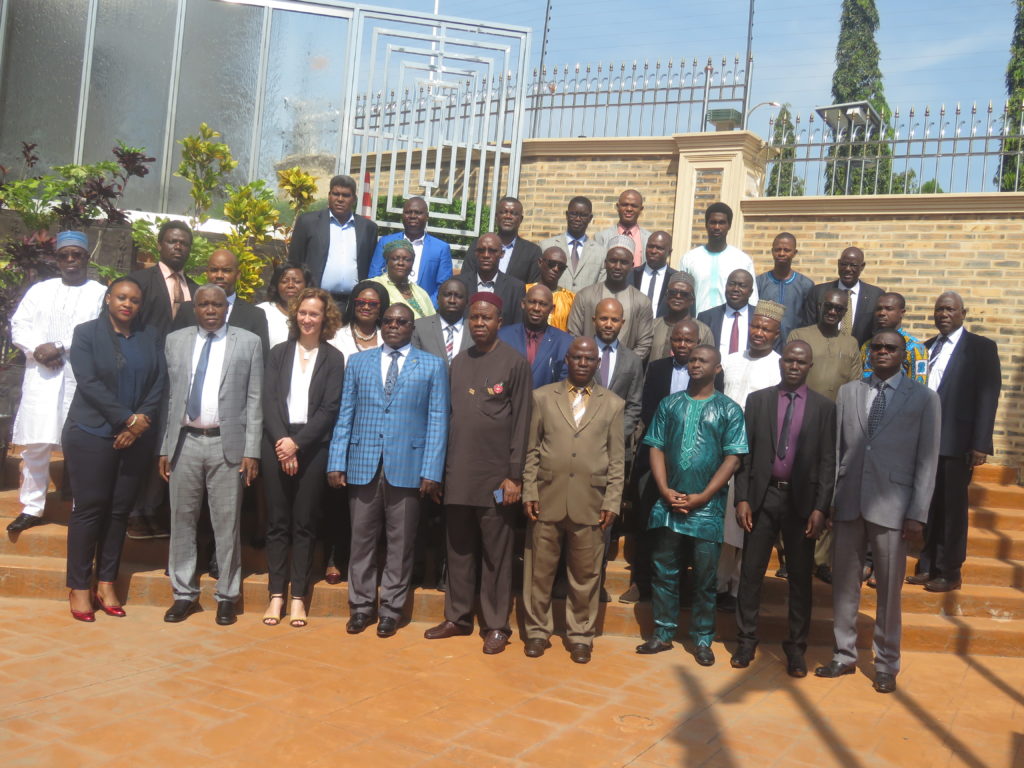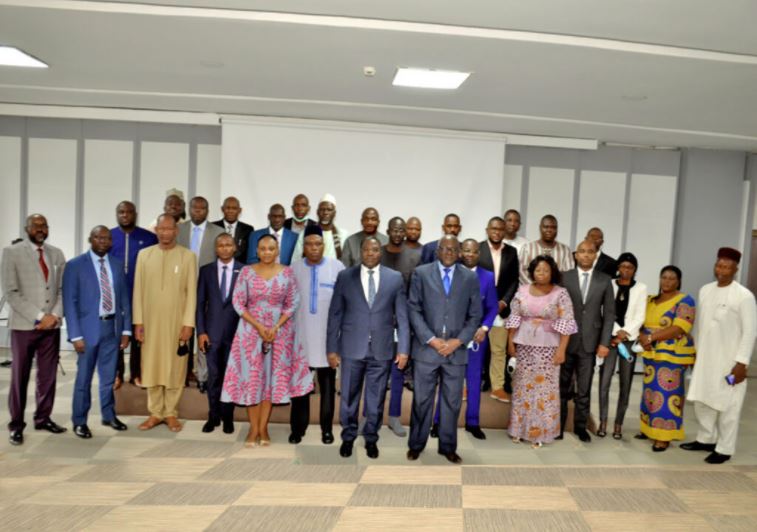
Meeting on obstacle on free movement of goods under ECOWAS Trade Liberalization Scheme (ETLS), 11-12 November 2019
 The Economic Community of West African States (ECOWAS) aims to promote cooperation and integration, with a view to creating an Economic and Monetary Union that promotes economic growth and development in West Africa. In order to achieve this objective, Article 3 of the Treaty provides for the creation of a common market and the trade liberalization scheme adopted by ECOWAS (ETLS) as the first instrument to achieve these objectives.
The Economic Community of West African States (ECOWAS) aims to promote cooperation and integration, with a view to creating an Economic and Monetary Union that promotes economic growth and development in West Africa. In order to achieve this objective, Article 3 of the Treaty provides for the creation of a common market and the trade liberalization scheme adopted by ECOWAS (ETLS) as the first instrument to achieve these objectives.
However, the effective implementation of the scheme by all ECOWAS Member States without exception is still a major challenge. If, at one time, some Member States had reasons not to apply the scheme, in particular the complexity of the rules of origin the cumbersome accreditation procedure, today these reasons cannot be invoked. In fact, in 2018, the ECOWAS Commission adopted an Additional Act laying down ECOWAS community rules of origin. This text itself has corrected the procedures governing the ETLS and has also innovated in some topics such as the proof of origin and the procedure of recognition of origin. This adopted ECOWAS text was prepared in collaboration with the WAEMU Commission. In addition, in recent years the ECOWAS Commission has increased awareness and training and also advocacy with Member States through the ETLS Task Force to improve the implementation of the ETLS by the Member States.
Despite these undertakings by the ECOWAS Commission, the finding of non-compliance by some Member States with the ETLS Protocol is persistent. This observation has been underlined by regular evaluations of the functioning of the ETLS and the referrals of the ECOWAS Commission to resolve conflicts often due to non-compliance with the Protocol. Thus, the 24th meeting of the Administration and Finance Committee in December 2018 gave the Directorate of the Customs Union and Taxation the direction to organize a meeting on these obstacles to the free movement of goods and find a suitable solution to these cases.
The main objective of the meeting was to discuss the proper mechanism to enforce the ETLS texts and to denounce the bad practices related to its implementation in the Member States. Specifically, the workshop focused on: (i) Identifying the bad practices related to the implementation of ETLS (ii) Arranging for the resolution of these conflicts arising from the implementation of the ETLS (iii) Developing a strategy for resolving disputes over the The expected results of the workshop were to: (i) Resolve cases of obstruction in suspension; (ii) Agree on a single community levy for the community; (iii) Make mutual assistance between customs administrations functional. (iv) Reflect on a dispute resolution strategy for the ECOWAS Trade Liberalization Scheme.
 The meeting was attended by the National approval committee from ECOWAS 15 member states, private sector, civil society members and all stakeholders of the ECOWAS Trade Liberalization Scheme. At the meeting the ECOWAS Commission represented by the commissioner for trade, customs and free movement on behalf of the president of the Commission thanked all stakeholders for their commitment towards the implementation of the ETLS and their support towards the realization of the Regional Free Trade zone.
The meeting was attended by the National approval committee from ECOWAS 15 member states, private sector, civil society members and all stakeholders of the ECOWAS Trade Liberalization Scheme. At the meeting the ECOWAS Commission represented by the commissioner for trade, customs and free movement on behalf of the president of the Commission thanked all stakeholders for their commitment towards the implementation of the ETLS and their support towards the realization of the Regional Free Trade zone.
The Directorate of Customs Union and Taxation made presentations on the challenges experienced by the scheme as extracted from the survey obtained from member state concerning their recurrent issues in the operationalization of the scheme while providing various conflict management strategy as a panacea for the various obstacles experienced by implementers of the ETLS. Other facilitators of the ETLS like GIZ AND Borderless Alliance commended the efforts of NAC members, Customs officers, from member state as well as those linked to the suitability of the scheme.  The Directorate also gave an overview of the achievements of the scheme for the year 2019 regarding the various participation of member’s state with respect to enterprise and product registration. Indicating that, there was an increase of 90% for products registered from 2018 to 2019. Member states where encouraged and reassured that the ECOWAS commission with its Partners would ensure that more activities to improve the effective and efficient implementation of the ETLS in member state would be doubled in 2020.
The Directorate also gave an overview of the achievements of the scheme for the year 2019 regarding the various participation of member’s state with respect to enterprise and product registration. Indicating that, there was an increase of 90% for products registered from 2018 to 2019. Member states where encouraged and reassured that the ECOWAS commission with its Partners would ensure that more activities to improve the effective and efficient implementation of the ETLS in member state would be doubled in 2020.



